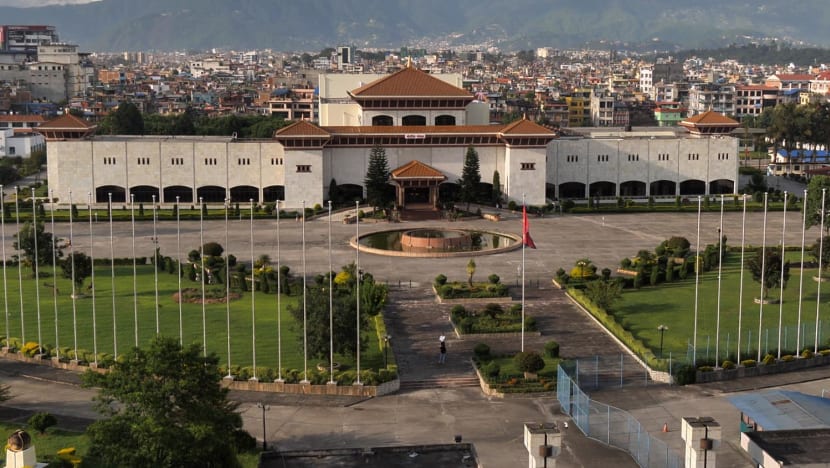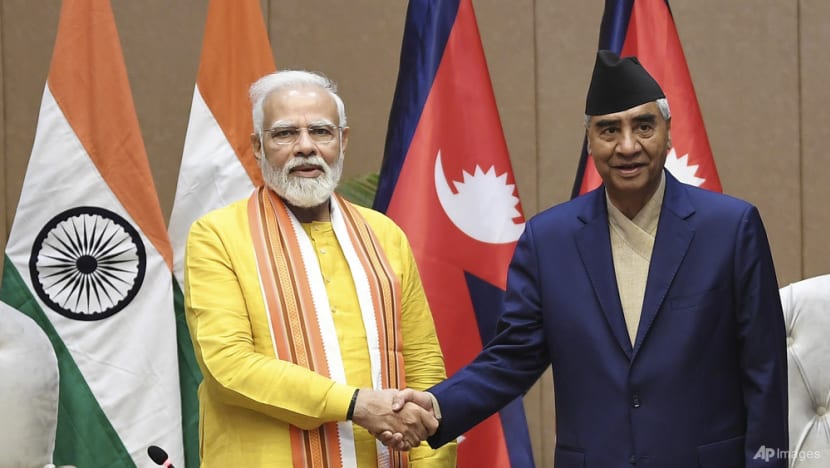Nepal gears up for polls: Managing ties with Asian superpowers China, India crucial for country
Foreign policy has already been made a hot-button issue ahead of the parliamentary elections in Nepal, which is sandwiched between Asia’s superpowers China and India. Domestically, high inflation and a stagnant economy also feature high on the agenda.

KATHMANDU: Managing relations with its two superpower neighbours China and India will be a critical task for Nepal’s next government, as the country heads to the polls in November.
Foreign policy has already been made a hot-button issue ahead of the parliamentary elections in Nepal, which is sandwiched between India and China.
Diplomatic relations will be among the biggest challenges facing the 275 lawmakers who will be elected to the country’s House of Representatives in November.
Domestically, high inflation and a stagnant economy also feature high on the agenda of the nation of 29 million people.
Political analyst Chandra Dev Bhatta, a senior programme director at Friedrich-Ebert-Stiftung Nepal, said: “There are many issues, but they always use foreign policy. For a country like Nepal, nationalism becomes the most important because it can hit hard on the sentiments of the people.”
Prime Minister Sher Bahadur Deuba’s Nepali Congress party governs in a coalition with Maoist and socialist partners. Despite that, it is considered closer to Delhi and Western nations.

Meanwhile, the Communist Party of Nepal led by former prime minister K P Sharma Oli – Mr Deuba’s main opponent – is seen to be closer to China, which is Nepal’s biggest foreign investor.
In 2019, China decided to fund nine crucial infrastructure projects in Nepal under its Belt and Road initiative, which is aimed at linking China to the rest of the world through a network of ports, roads and railways.
Due to its proactive involvement, analysts see Beijing as the biggest influence in Nepal.
Related:
US-NEPAL RELATIONS
But that status looked set to waver when Nepal’s parliament ratified a key agreement in February that drew it closer to the United States.
Through the Millennium Challenge Corporation (MCC) Nepal Compact, the US pledged US$500 million for roads and energy infrastructure development in the landlocked country.
But the move received much opposition as it was viewed as a way for the US to use the Himalayan nation as a tool to counter Chinese influence. There were also concerns that the pact could eventually compromise Nepal’s sovereignty.
The MCC Nepal Compact was eventually signed after the US government clarified in writing that it was not a part of Washington’s Indo-Pacific strategy, and that the Constitution of Nepal prevails over the agreement.
Analysts believe Nepal will inevitably figure in the regional strategy of the US as it refocuses on the Indo-Pacific.
Professor Harsh Pant of the Observer Research Foundation said in the great power contest, the US has to offer a better alternative to smaller nations like Nepal, which can “decide for themselves what they want to do” with it.
After analysts partly blamed Sri Lanka’s financial crisis on expensive Chinese debt, many people in Nepal have become wary of the Chinese footprint in their country. Meanwhile, observers see this as an opportunity for neighbouring India to bring Kathmandu into its fold.
If Mr Oli unseats Mr Deuba in the upcoming polls, Nepal could well move further away from New Delhi and closer to Beijing, said experts, stressing that the elections could not only decide relations with its neighbours but also influence geopolitics in South Asia.
















